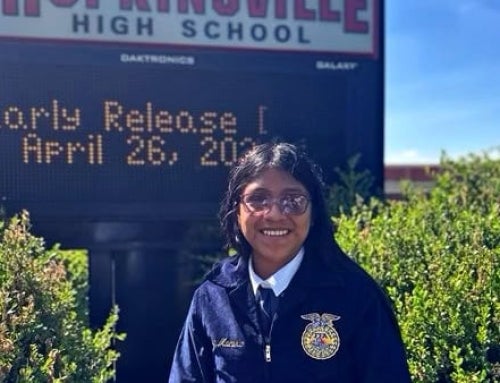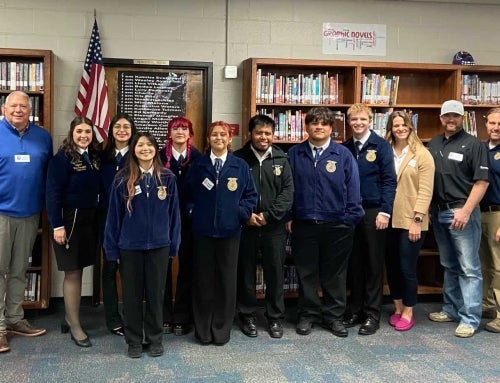Corey Rosenbusch is a firm believer in paying it forward — especially when it comes to how FFA has shaped who he is today.
“FFA has always been an extension of the family,” says Rosenbusch, who grew up admiring his father, an agriculture teacher and FFA advisor.
“Even before I was old enough to be in FFA, I was always at an event — our evenings, summers and everything else in-between involved FFA somehow,” Rosenbusch says. “It was more than just an organization. It was part of my daily life growing up. I couldn’t wait for my turn to wear a blue jacket.”
Rosenbusch’s time in FFA included serving as the 1995-96 Texas FFA Association president and 1996-97 national FFA president. Today, he is the president and CEO of the Fertilizer Institute in Washington D.C., where he says he uses the skills he learned in FFA in nearly every aspect of his career.
The influence the organization has had on Rosenbusch inspired him to make a personal financial commitment. He decided to support the organization through his estate plan after he was invited to join the National FFA Foundation’s Individual Giving Council (now known as the President’s Advisory Council), which promotes the advancement of FFA through identification, cultivation and solicitation of individual gifts. More recently, he decided to increase his current support to allow FFA to expand opportunities.
Rosenbusch believes individual giving is a critical component for helping future generations receive the same experiences he had in FFA.
“I am proud that FFA recognizes individuals who have the ability to give back to the organization,” Rosenbusch says. “I think that’s an important part of the future of the organization. If you owe gratitude to FFA for who you are today, the best way to pay it forward is to offer your support if you have the means to do so.”
Rosenbusch hopes his support does open more doors for more students.
“I would love to see more programs like FFA be expanded to every school district across the country,” Rosenbusch says. “I think continuing to stretch the organization’s reach even further than it already is could be a reality.
“When we reflect on what got us to where we are today, we can all attribute certain formational experiences in life to that journey,” Rosenbusch says. “Mine was certainly FFA. There are no other experiences in my life that had a bigger impact on who I am or what I do than FFA.”












